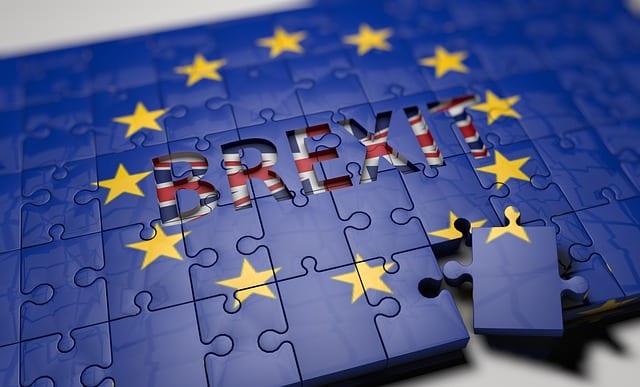Brexit Update 12 October 2020 by Camilla Call, Brexit Advisor
The past week saw an exchange of bills between the House of Lords and House of Commons on matters close to a lot of people’s hearts; agriculture and immigration. Updated guidance for the new border operating model was published which covers businesses and passengers crossing the border after the transition period ends. The Internal Market Bill is still causing pessimistic headlines regarding a deal, but we did see some movement on the UK’s potential acceptance of the Human Rights Act the end of the transition period, something the EU was longing for continuation of. This Thursday is the meeting of the European Council, where EU leaders will review the state of the negotiations, and it marks the unofficial target date given to agree a deal by.
The House of Lords has added a number of amendments to the post-Brexit immigration bill (Independent 5 October) including for unaccompanied child refugees to be reunited with close relatives in the UK. This came after the Home Secretary, Priti Patel, had said hours earlier about fixing a broken asylum system. A second amendment backed by the Lords would give children in care automatic leave to remain under the EU Settlement Scheme. An independent review into the impact of the change on social care, following warnings it could fuel staff shortages, was also supported, along with an amendment to prevent the introduction of financial restrictions on Britons returning to the UK with their EU families from March 2022. The House of Lords will consider the amendments made to the Immigration and Social Security Co-ordination (EU Withdrawal) Bill on Monday, which has been amended seven times since it arrived from the House of Commons.
We heard from Maros Sefcovic, European Vice President, on 6 October (Independent) that “time is short” to reach a deal and the decision to introduce the Internal Market Bill, which goes against the Withdrawal Agreement, helped drive more of a wedge between the two sides. British Foreign Minister, Dominic Raab, provided his opinion that he thinks it’s a “precautionary defensive reaction” and that no other country saw Britain as “anything other than a… reliable defender of the international rules of law” (RTE).
It was reported on 7 October (Guardian) that the UK is moving towards acceptance of the Human Rights Act (HRA), which it was wanting to move away from after the transition period. The European convention on human rights (ECHR) is incorporated into British domestic legislation via the HRA, but David Frost had previously said it would be an infringement of the country’s “sovereign independence” to write in such a commitment to a deal, after the EU wanted confirmation that the ECHR would continue to apply. This key development is said to offer up access to the EU databases and other forms of crime-fighting cooperation to British law enforcement.
Charles Michel, President of the European Council, said the EU will stand in full solidarity with Ireland and that Brexit should not have negative consequences for Ireland when it comes to EU relations (The Brussels Times 8 October). Referring to the Northern Ireland protocol, which is part of the Withdrawal Agreement being challenged by the UK’s Internal Market Bill, Michel reassured the Prime Minister of Ireland, Micheál Martin, that this will be fully guaranteed as “a matter of law, a matter of trust”. He also called upon the British government to take “significant steps”.
The London Economic also shared this story on 8 October, reporting Michel as referring to the European Council on October 15 and 16 that “The coming days are crucial, this is the moment of truth… It’s now for the UK to restore trust and to put all its cards on the table.” Martin was reported as saying “There’s been more intensified engagement,” but more needs to be done to get to the end stage of negotiations.
BBC reported on 9 October that David Frost and Michel Barnier had met for the latest round of talks which had been “useful”.
The government announced the plan for up to 10 inland border sites to avoid long queues of lorries at ports such as Dover and Liverpool (Guardian 8 October). The sites could be in place for up to two years and include Birmingham, Warrington and a former airfield near Epping Forest in Essex. The plans were shared in an update of the border operating model along with the need for hauliers to have a Kent access permit if they are heading for a ferry in Dover or a Eurotunnel train in Folkestone as part of congestion management.
After reporting a couple of weeks ago about the celebrated amendment to the Agriculture Bill in the House of Lords, we heard via the Financial Times on 8 October that the House of Commons has indicated they won’t back the change. The reason given for not requiring the same food standards of the UK was that it would prevent them from negotiating new trade deals. Liz Truss, Trade Secretary, said a blanket ban would “prevent developing countries sending their foodstuffs to the UK.” However, she added “We are absolutely clear that we are going to stand up for our high standards in any deal we strike, including with the US.” MPs are set to consider the amendments on Monday 12 October; if they don’t accept the amendments, the bill will be passed back to the House of Lords in what is known as ping-pong.
Dorset Chamber delivers a free of charge Brexit advice service to all businesses, funded by BCP Council and Dorset Council. For information and advice please contact us at gateway@dcci.co.uk / 01202 714800 or visit dorsetchamber.co.uk.
